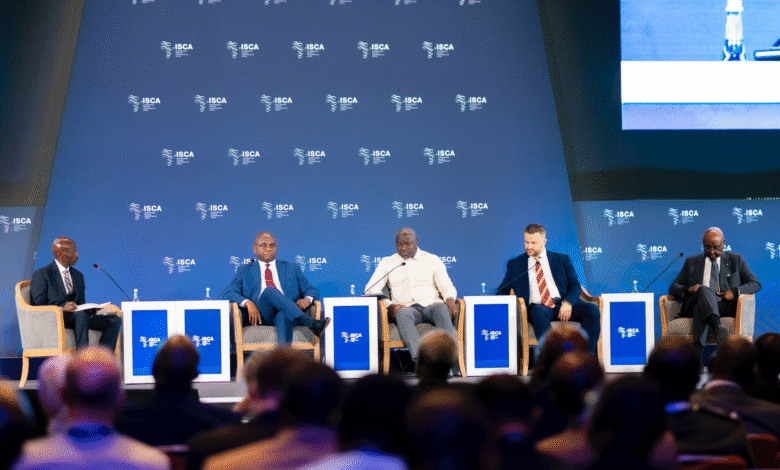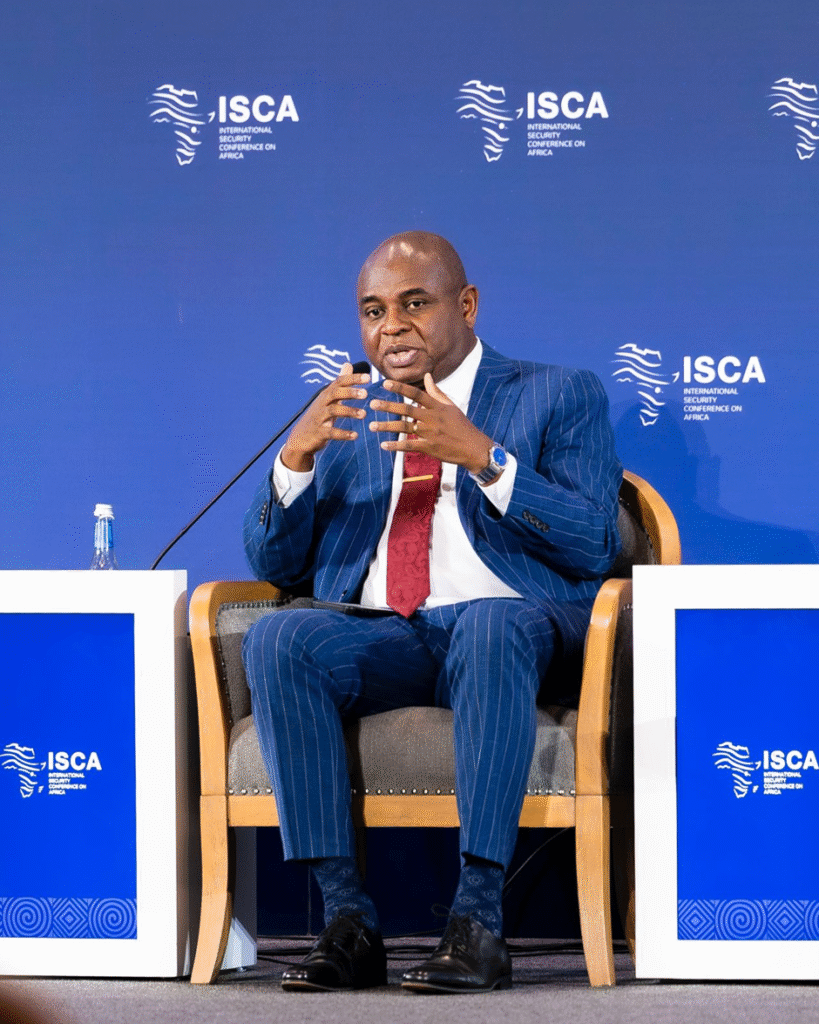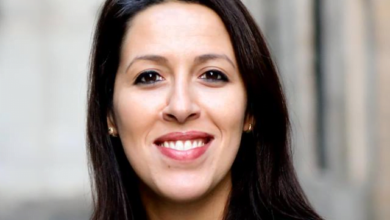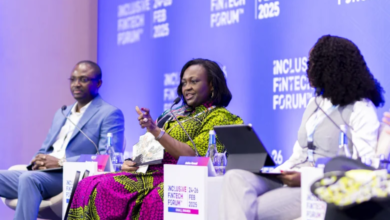Security, sovereignty and critical minerals : the urgency of African solutions
The International Security Conference on Africa (ISCA), held in Kigali from May 19 to 21, 2025, brought together over 1,000 African and international experts to address the continent’s security and strategic challenges. From cybersecurity to sovereignty over natural resources, artificial intelligence and terrorism, the event underscored the urgent need for African-led solutions in an increasingly unstable world.

By Dounia Ben Mohamed, in Kigali
In a fragmented world fraught with geopolitical and technological tensions, Africa no longer has the luxury of inaction. The first edition of the International Security Conference on Africa (ISCA), held in Kigali from May 19 to 21, 2025, marked a significant step toward building a strategic narrative led by Africans. With delegates from 17 countries in attendance, the conference aimed to “provide a platform for dialogue and political coordination tailored to Africa’s security challenges,” said Moussa Faki, former Chairperson of the African Union Commission and Chair of the ISCA Advisory Council.
Over three days, more than 1,000 participants – including government officials, intelligence experts, civil society and private sector representatives – examined the continent’s main threats: cyber risks, terrorism, political instability, transnational crime, and the global race for critical raw materials.
More than just a threat assessment, this high-level meeting laid the groundwork for a sovereign and integrated vision of security, built around three pillars: technological mastery, value-added transformation of critical resources, and a new governance framework for development.
Cybersecurity & AI: Toward strategic autonomy

While digital transformation holds the promise of growth, it also opens up new vulnerabilities. In Kigali, the message was clear: cyber threats, digital interference, and imported technological solutions must push Africa to assert its technological sovereignty.
Not everything designed elsewhere serves our interests
“Not everything designed elsewhere serves our interests,” warned Noordin Haji, Kenya’s Director General of National Intelligence Service. Behind this statement lies a crucial imperative: the need to develop African AI policies tailored to local contexts, institutional needs, and the continent’s cultural values.
A central point of the debate was also the need to make intelligence actionable within judicial systems: “For a long time, we have struggled to convert intelligence into admissible evidence. Intelligence must effectively support judicial and law enforcement systems,” he added.
Paula Ingabire, Rwanda’s Minister of ICT, highlighted her country’s “zero-trust” approach to digital security, combined with Rwanda’s commitment to the Malabo Convention, a cornerstone of African cooperation on cybersecurity.
Critical resources: From global scramble to economic sovereignty
The global rush for strategic raw materials — lithium, cobalt, uranium — has placed Africa at the heart of major geo-economic rivalries. Yet, in this new silent war, the continent continues to export its resources cheaply, while others add value and reap the benefits.
We are depleting our resources at great speed. When our industry takes off, we may end up importing what we currently have in abundance
Donald Kaberuka, former Rwandan Minister of Finance and Chairman of Southbridge Group, pointed to a harsh reality: “Some powers are buying minerals to stockpile them and deprive their rivals.” “We are depleting our resources at great speed. When our industry takes off, we may end up importing what we currently have in abundance.”
His concerns echoed those of Lassina Zerbo, Chair of the Rwanda Atomic Energy Board, who stressed that sovereignty is not just about extraction: “Critical materials are not just about commerce, they’re a matter of security.”
One figure alone highlights the scale of the challenge: one ton of raw bauxite sells for $65, but when transformed into aluminum, its value jumps to $2,500.
Rethinking governance for resilient development

Throughout the speeches and discussions, a shared belief emerged: the continent’s security cannot be separated from its economic development, its ability to process its own resources, and its independence from structural dependencies.
Africa has a huge opportunity over the next 25 years. Global demand for natural resources will soar. This outlook can transform the continent — if we change our mindset and embrace good governance
Kingsley Moghalu, President of the Africa School of Governance, strongly advocated for a new mindset: “We must end the logic of individual capture. Africa’s economic future depends on our ability to move up the value chain.”
He emphasized that local transformation is more than just a competitiveness issue — it is also a matter of geopolitical stability: “It’s not just vital for trade, but for the balance of power globally.”
For Moghalu, the window of opportunity is narrow but real: “Africa has a huge opportunity over the next 25 years. Global demand for natural resources will soar. This outlook can transform the continent — if we change our mindset and embrace good governance.”
Toward an African security architecture
As discussions evolved, the ISCA Conference outlined the foundations of a future African security architecture — one that is regional, multidimensional, and anticipatory. Security was no longer seen as merely a defense mechanism, but as a tool of power, negotiation, and transformation.
We must move from a defensive posture to a proactive approach to security
Moussa Faki Mahamat, Chair of the ISCA Advisory Council, summarized the challenge: offering Africa a platform rooted in its own realities, to define its priorities free from outside influence.
Julie Gichuru, moderator of one of the panels and Chairperson of ALADI, put it plainly: “We must move from a defensive posture to a proactive approach to security.”
In other words: stop enduring — start building. And fast.
A call to action
The creation of ISCA as a permanent forum is far from symbolic. It marks the beginning of a new chapter in which Africa seeks to reclaim control over its strategic destiny.
Beyond diagnosis, Kigali was a call to action — for a resilient, sovereign Africa ready to shape its own role in a rapidly changing world.






